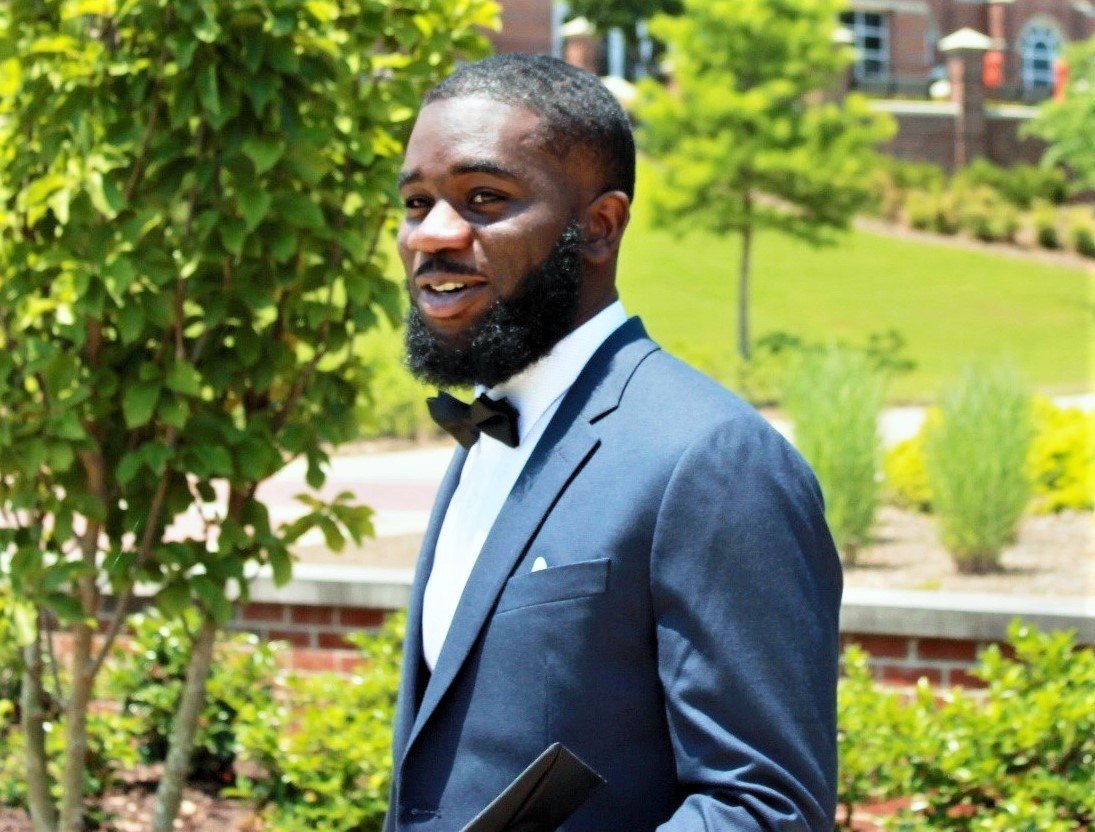As the coronavirus disease (COVID-19) continues to impact people’s lives, patients with cancer may be at an increased risk for severe symptoms. For this reason, a cancer center in Atlanta, Georgia, is making it their top priority to ensure the health and safety of their patients.
Nicholas Hardeman, a Fort Valley State University Master of Public Health student, serves as a clinical researcher on a multidisciplinary team at the Winship Cancer Institute of Emory University.
Seeing more than 17,000 patients a year, Winship Cancer Institute is Georgia’s only National Cancer Institute-designated comprehensive cancer center. It is at the forefront of cancer research, innovation and discovery.
Three months on the job, Hardeman has two years of research experience. He oversees different cancer studies, delegates tasks and guides patients with treatment options or follow-up questions.
“Being there for the patients is my main duty,” he said. “Because of our clinical trials, they are receiving some type of therapy such as an IV, chemotherapy or supplement.”
His additional duties include entering data and ensuring everything is done correctly.
“There are many hats that I wear, but the main hat that I try to focus on is making sure the patient is comfortable and understands every step of the process. Especially with cancer, you want the patient to feel confident in knowing that you are doing the best you can to try to help them.”
Hardeman said Emory is one of the first organizations in Georgia to respond rapidly to the pandemic and adapt its practices to protect patients and staff. Emory changed its structure and ordered most employees to work from home. They also adjusted clinics, treatment and infusion bays by not allowing patients to bring visitors to minimize patient interaction and promote social distancing.
“I have been able to see the transition firsthand and this has been quite an experience for a public health professional. I can work with my patients and express to them the importance of social distancing, even with their loved ones,” Hardeman said. “Dealing with patients who have cancer is a delicate situation, because their immune systems are usually compromised. Everyone who steps inside the facilities are screened and asked if they are at high risk for spreading or contracting COVID-19.”
The 2018 Mercer University graduate, who earned a bachelor’s degree in global health, said it is truly an experience to work on the front lines of a pandemic. They assist about 80 to 100 patients weekly, which includes about 10 or 20 face-to-face interactions.
“It has been fulfilling to show them that we are still here, and we are still helping out as much as we can in those times of need,” Hardeman said. “They also let us know they are grateful for what we are doing. That is very fulfilling to hear those things and see patients get better over time.”
He said this position fell into his lap as a blessing. Setting an example for his two younger brothers, he said hard work pays off.
“I always knew I wanted to do something in the health care field, but it is amazing how things work out and open up for you. Five years ago, I had no idea that this position even existed,” Hardeman said.
The Atlanta native continues to challenge himself. He said the work he does is important because not only are health professionals in his field able to save and prolong patients’ lives, they also observe a lot of medicines and therapies before they hit the market.
“To have access to that knowledge that could possibly help others is very rewarding,” he said.
The MPH Wildcat, who plans to graduate in May 2020, encourages people to take the COVID-19 pandemic serious.
“To protect the people you care about, or the people you may never encounter, you should follow the guidelines to protect everyone,” he advised.
This experience has taught him that preparation can go a long way.
“As a country, we were not necessarily prepared for this. That can be translated into any aspect of your life. Always be prepared and always be aware of things that could happen,” Hardeman said. “Bad things are going to happen in life no matter what, but you want to be able to adapt to them the best way possible.”

